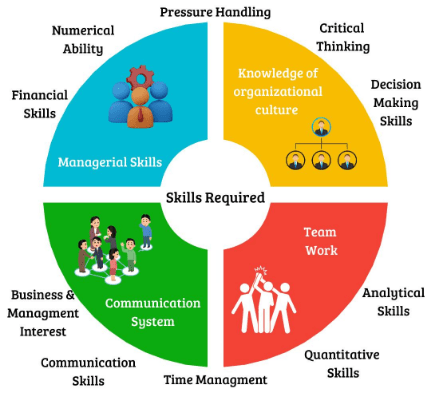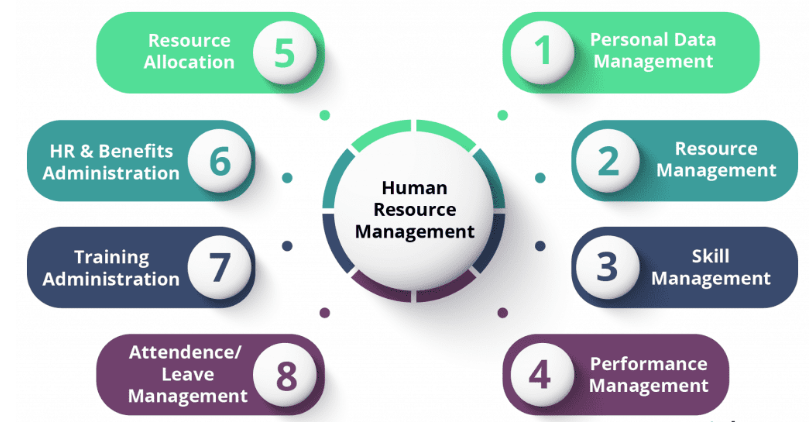
- Introduction to MBA Specializations
- MBA in Finance
- MBA in Marketing
- MBA in Human Resources
- MBA in Operations Management
- MBA in Business Analytics
- MBA in Entrepreneurship
- Conclusion
Introduction to MBA Specializations
An MBA (Master of Business Administration) is widely regarded as one of the most prestigious and valuable graduate degrees, equipping students with essential knowledge and skills for leadership and management roles in today’s dynamic business environment. One of the key attractions of pursuing an MBA is the broad range of specializations it offers, allowing students to tailor their education based on individual interests and career aspirations. These specializations provide focused learning in specific fields such as finance, marketing, human resources, operations, business analytics, entrepreneurship, and more, ensuring students gain relevant expertise and a competitive edge in their chosen industries. Selecting the right MBA specialization is a critical decision that can significantly shape one’s career path. A well-chosen specialization can open doors to niche roles, enhance professional credibility, and improve job prospects and salary potential. For instance, a specialization in Finance can lead to roles in investment banking or financial analysis, while one in Marketing can pave the way for careers in brand management or digital marketing. As industries evolve and new business challenges emerge, specializations like Business Analytics, Information Technology, and Sustainability Management are gaining popularity due to their relevance and future potential. Given the wide array of options, it is essential for MBA students to align their specialization with their strengths, long-term goals, and the demands of the job market. In this article, we will explore the most sought-after MBA specializations, what they involve, and provide guidance on how to choose the one that best suits your professional journey.
MBA in Finance
MBA in Finance is one of the most popular and rewarding specializations for students aiming to build a successful career in the world of finance and investment. It is ideal for individuals who have a strong interest in numbers, analytical thinking, and strategic decision-making. This specialization equips students with a deep understanding of financial principles, tools, and practices that are essential for managing the financial health of businesses and organizations. An MBA in Finance curriculum typically includes subjects such as financial accounting, corporate finance, investment management, financial markets, portfolio management, mergers and acquisitions, and risk analysis. Through these courses, students learn how to analyze financial statements, assess investment opportunities, manage corporate funds, and develop long-term financial strategies. The program also emphasizes the importance of ethical financial practices and regulatory compliance in today’s global business environment. Graduates with an MBA in Finance are well-prepared to take on a variety of roles, including financial analyst, investment banker, corporate finance manager, financial planner, or consultant. These positions are in high demand across sectors such as banking, investment firms, consulting, insurance, and multinational corporations.

Additionally, many finance MBA graduates pursue certifications like CFA (Chartered Financial Analyst) to further enhance their career prospects. With the global economy becoming increasingly complex, the need for skilled financial professionals continues to grow. An MBA in Finance not only opens the door to high-paying and influential positions but also provides the expertise to navigate complex financial landscapes and contribute significantly to business growth and stability.
MBA in Marketing
- Strategic Foundation: An MBA in Marketing equips students with strategic knowledge of business and marketing principles, including market analysis, brand positioning, and competitive strategy, essential for effective decision-making in dynamic markets.
- Core Curriculum: The program covers core business areas finance, operations, leadership alongside marketing-specific subjects like consumer behavior, digital marketing, sales strategy, and marketing analytics, offering a comprehensive business education.
- Analytical & Research Skills: Students gain strong analytical skills through case studies, market research projects, and data-driven decision-making, enabling them to interpret consumer data, forecast trends, and measure campaign performance effectively.
- Practical Learning: Many MBA programs integrate internships, real-world projects, simulations, and industry interactions, giving students hands-on experience in solving real marketing challenges across various sectors.
- Digital & Global Marketing: The curriculum emphasizes digital transformation in marketing, including SEO, social media, and e-commerce, as well as global marketing strategies to address international consumer markets and cross-cultural branding.
- Career Opportunities: Graduates pursue careers in brand management, product marketing, advertising, digital marketing, market research, and sales leadership, often at mid to senior management levels in diverse industries.
- Leadership & Communication: MBA students develop strong leadership, communication, and team-building skills essential for managing marketing teams, influencing stakeholders, and leading organizational growth through innovative campaigns.
- Strategic HR Knowledge: An MBA in Human Resources provides a deep understanding of HR functions like talent management, organizational behavior, labor laws, and strategic workforce planning, aligning HR with overall business goals.
- Core Business Foundation: Alongside HR-specific courses, students gain knowledge in finance, marketing, operations, and leadership, enabling them to understand cross-functional dynamics and contribute to organizational success.
- Talent Acquisition & Development: The program emphasizes recruitment strategies, employee engagement, training and development, and performance management preparing graduates to attract, retain, and develop top talent in competitive industries.
- Employee Relations & Ethics: Students learn to manage employee relations, resolve workplace conflicts, ensure compliance with labor laws, and foster ethical and inclusive workplace cultures that support diversity and equity.
- HR Analytics & Technology: Modern HR requires data-driven decision-making. The MBA teaches the use of HR analytics, HRIS (Human Resource Information Systems), and technology tools to measure workforce productivity and optimize HR operations.
- Leadership & Change Management: HR professionals play a key role in driving change. The program builds leadership, communication, and change management skills to help navigate organizational transformation and lead people effectively.
- Career Opportunities: Graduates can pursue roles such as HR Manager, Talent Acquisition Specialist, Learning & Development Manager, Compensation Analyst, and HR Business Partner, with opportunities in all major industries.
- Data-Driven Decision Making: In the era of big data, businesses require professionals skilled in analyzing large datasets to extract actionable insights that inform strategic decisions and improve organizational outcomes.
- Core Skills & Tools: MBA in Business Analytics programs teach students how to use advanced data analysis tools, machine learning algorithms, and business intelligence software to handle complex business problems effectively.
- Problem Solving & Process Improvement: Students learn to leverage data to identify inefficiencies, optimize processes, and implement solutions that enhance performance across various business functions.
- Trend Analysis & Forecasting: The curriculum emphasizes the ability to analyze historical data trends and build predictive models to forecast future outcomes, helping businesses anticipate market changes and customer needs.
- Diverse Career Paths: Graduates can pursue roles such as data analysts, business intelligence analysts, data scientists, and management consultants, applying their analytical expertise across industries.
- Industry Applications: Professionals with business analytics skills are in demand in sectors like finance, healthcare, technology, retail, and more, reflecting the widespread adoption of data-driven strategies.
- Growing Popularity: As businesses increasingly rely on data for competitive advantage, the MBA in Business Analytics has gained popularity among those looking to bridge business acumen with technological expertise.
MBA in Human Resources

MBA in Operations Management
An MBA in Operations Management is designed for individuals who are passionate about improving efficiency, streamlining processes, and ensuring the smooth functioning of business operations. This specialization provides students with the tools and techniques required to manage the end-to-end production and delivery of goods and services in a cost-effective and timely manner. It emphasizes the importance of optimizing supply chains, managing inventory, and improving workflow systems to enhance productivity and reduce waste. The curriculum typically includes subjects such as supply chain management, logistics, quality control, production planning, inventory management, operations strategy, and business process reengineering. Students also learn to apply data analytics and technology to make informed operational decisions, improve service delivery, and solve real-world business challenges. These skills are crucial in today’s competitive market, where operational excellence can significantly impact a company’s profitability and customer satisfaction. Graduates of an MBA in Operations Management are well-suited for roles such as operations manager, supply chain analyst, production planner, logistics coordinator, and quality assurance manager. They find opportunities across a wide range of industries including manufacturing, retail, transportation, e-commerce, healthcare, and hospitality. As businesses increasingly prioritize efficiency, lean processes, and sustainability, the demand for skilled operations professionals continues to grow. This specialization is ideal for individuals who enjoy analytical thinking, problem-solving, and working in dynamic, process-driven environments. With the right combination of technical knowledge and strategic insight, professionals in operations management play a vital role in driving organizational success and innovation.
MBA in Business Analytics
MBA in Entrepreneurship
An MBA in Entrepreneurship is specifically designed for individuals who aspire to launch their own ventures or take on leadership roles in startups. This specialization equips students with a comprehensive understanding of how to identify business opportunities, develop innovative ideas, and transform them into successful enterprises. The program emphasizes practical knowledge and hands-on experience in areas such as business planning, venture capital, startup financing, innovation management, and market analysis. Students learn how to craft detailed business plans, pitch ideas to investors, assess risks, and navigate the unique challenges of starting and growing a new business. The curriculum often includes case studies, startup incubators, and mentorship opportunities that allow students to apply their learning in real-world settings. In addition to core business skills, students develop strong abilities in leadership, strategic thinking, creativity, and resilience, which are essential for building and managing a startup from the ground up. Graduates of an MBA in Entrepreneurship often become entrepreneurs, business owners, startup consultants, or innovation managers. Others may work within larger organizations to foster innovation and drive growth through new product or business development. This specialization is particularly well-suited for individuals who are passionate about innovation, enjoy solving complex problems, and are willing to take calculated risks. In a rapidly evolving global economy, the demand for entrepreneurial thinkers continues to rise. An MBA in Entrepreneurship provides the tools, knowledge, and confidence to turn a business idea into a viable venture, making it an ideal choice for those who want to make a meaningful impact through innovation and leadership.
Conclusion
In conclusion, choosing the right MBA specialization is a crucial decision that significantly influences one’s career path and professional development. With a wide range of options available such as Finance, Operations Management, and Entrepreneurship, students can tailor their education to suit their individual interests, skills, and career aspirations. Each specialization provides a focused curriculum that prepares students for specific roles in the business world, offering both theoretical knowledge and practical experience. Whether one aims to manage corporate finances, streamline business processes, or launch a new venture, an MBA specialization equips them with the tools and insights needed to succeed. Moreover, an MBA helps develop essential soft skills such as leadership, communication, and strategic thinking, which are highly valued in any industry. The program also encourages networking, collaboration, and exposure to diverse business scenarios through internships, projects, and case studies. These experiences enhance the overall learning process and prepare graduates to tackle real-world business challenges with confidence. It is important for students to carefully assess their strengths, market demands, and long-term goals before selecting a specialization. Consulting with industry professionals, academic advisors, and reviewing job trends can provide valuable guidance. Ultimately, the right MBA specialization not only enhances professional qualifications but also opens doors to rewarding career opportunities, personal growth, and long-term success in the dynamic world of business.





